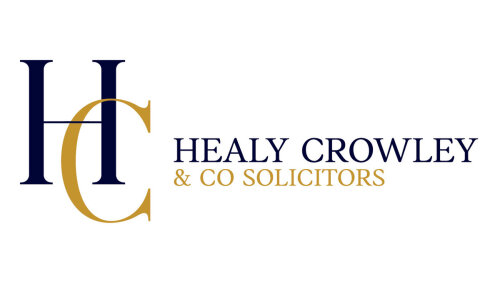Best Merger & Acquisition Lawyers in Ireland
Share your needs with us, get contacted by law firms.
Free. Takes 2 min.
Or refine your search by selecting a city:
List of the best lawyers in Ireland
About Merger & Acquisition Law in Ireland
Merger and Acquisition (M&A) law in Ireland encompasses a complex framework of regulations and practices governed by both domestic and European Union laws. M&A involves the buying, selling, or consolidating of companies, a process that requires careful consideration of various factors, such as corporate structure, tax implications, and competition laws. The Irish legal framework for M&A is characterized by a robust regulatory environment that ensures fair competition and protects the interests of shareholders and other stakeholders. Ireland's advantageous tax regime and business-friendly policies make it an attractive location for such transactions.
Why You May Need a Lawyer
Engaging in M&A activities often involves intricate legal processes and significant financial stakes. Here are common situations where legal assistance may prove invaluable:
- Negotiation of Terms: Lawyers help negotiate terms and conditions to ensure favorable outcomes and avoid disputes.
- Due Diligence: Conducting thorough due diligence is essential, and legal experts assist in reviewing contracts, financial statements, and compliance with regulations.
- Regulatory Compliance: Ensuring that transactions comply with Ireland and EU laws, including competition regulations, often requires legal expertise.
- Drafting Agreements: Legal professionals draft and review agreements to articulate clearly the rights and obligations of each party.
- Risk Management: Lawyers help identify and mitigate potential legal and financial risks associated with M&A.
Local Laws Overview
Several key aspects of Irish law are particularly relevant to M&A transactions:
- Companies Act 2014: This comprehensive legislation governs company formation, administration, and dissolution, playing a crucial role in structuring M&A deals.
- EU Merger Control Regulations: These rules prevent anti-competitive concentrations between enterprises, requiring notification and approval for significant mergers.
- Irish Takeover Panel Act 1997: This act regulates takeovers of public companies and mandates adherence to the Irish Takeover Rules to ensure fair and equitable treatment of all shareholders.
- Tax Considerations: Ireland offers various tax incentives, but it's essential to comply with regulations to benefit fully from them.
Frequently Asked Questions
What is the role of the Competition and Consumer Protection Commission in M&A?
The Competition and Consumer Protection Commission (CCPC) reviews mergers and acquisitions to ensure they do not substantially lessen competition in the marketplace.
How is due diligence conducted in M&A transactions?
Due diligence involves a comprehensive review of legal, financial, and operational aspects of a company to identify potential risks and liabilities before a deal is completed.
What are the tax implications of M&A in Ireland?
Tax implications vary depending on the structure of the transaction. Engaging a tax advisor is crucial to navigate corporate tax, capital gains tax, and VAT considerations.
Are employment laws affected in M&A transactions?
Yes, employment laws may be impacted, particularly regarding employee rights, transfer of undertakings, and redundancy policies.
What is a hostile takeover?
A hostile takeover occurs when a company attempts to acquire another company against the wishes of its board. The Irish Takeover Panel rules provide guidance on handling such situations.
How are mergers financed?
Mergers can be financed through cash, stock, debt, or a combination of these. Each method has different implications for ownership and control.
What are earn-out agreements?
Earn-out agreements are mechanisms to bridge valuation gaps between sellers and buyers, linking part of the purchase price to the future performance of the business.
How long does the M&A process take?
The duration varies significantly depending on the size and complexity of the transaction, regulatory requirements, and the speed of negotiations.
When is a merger considered complete?
A merger is complete when all legal documentation is signed, and regulatory approvals are obtained, followed by the final closing and consolidation of operations.
Can a merger be reversed?
Reversing a merger is complex and rare. It generally requires legal interventions, agreement from all parties involved, and meeting regulatory conditions.
Additional Resources
For more information on M&A in Ireland, the following resources can be helpful:
- Companies Registration Office (CRO): The CRO provides information on company filings and regulations.
- Irish Takeover Panel: Offers detailed guidance on takeover regulations.
- Competition and Consumer Protection Commission (CCPC): Provides insights into competition law and M&A assessments.
- Revenue Commissioners: For understanding tax obligations and incentives related to M&A.
Next Steps
If you are considering or involved in a Merger & Acquisition transaction, it is advisable to take the following steps:
- Consult with a Legal Expert: Engage a lawyer who specializes in M&A to provide tailored advice and representation.
- Gather Documentation: Prepare all necessary documentation for due diligence and legal review.
- Evaluate Financial Implications: Work with financial advisors to understand the valuation and financial impact of the transaction.
- Plan for Integration: Develop a comprehensive plan for post-merger integration to ensure successful consolidation of operations.
Lawzana helps you find the best lawyers and law firms in Ireland through a curated and pre-screened list of qualified legal professionals. Our platform offers rankings and detailed profiles of attorneys and law firms, allowing you to compare based on practice areas, including Merger & Acquisition, experience, and client feedback.
Each profile includes a description of the firm's areas of practice, client reviews, team members and partners, year of establishment, spoken languages, office locations, contact information, social media presence, and any published articles or resources. Most firms on our platform speak English and are experienced in both local and international legal matters.
Get a quote from top-rated law firms in Ireland — quickly, securely, and without unnecessary hassle.
Disclaimer:
The information provided on this page is for general informational purposes only and does not constitute legal advice. While we strive to ensure the accuracy and relevance of the content, legal information may change over time, and interpretations of the law can vary. You should always consult with a qualified legal professional for advice specific to your situation.
We disclaim all liability for actions taken or not taken based on the content of this page. If you believe any information is incorrect or outdated, please contact us, and we will review and update it where appropriate.
Browse merger & acquisition law firms by city in Ireland
Refine your search by selecting a city.

















